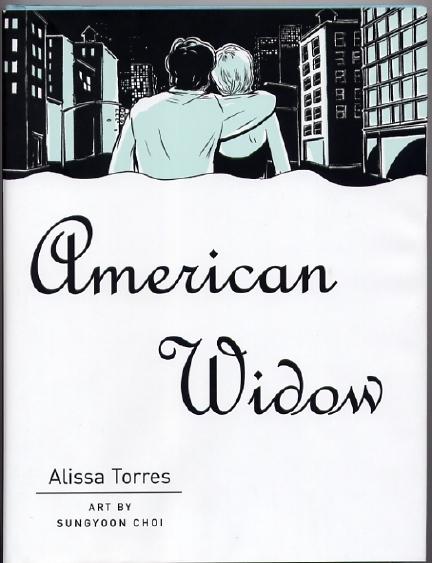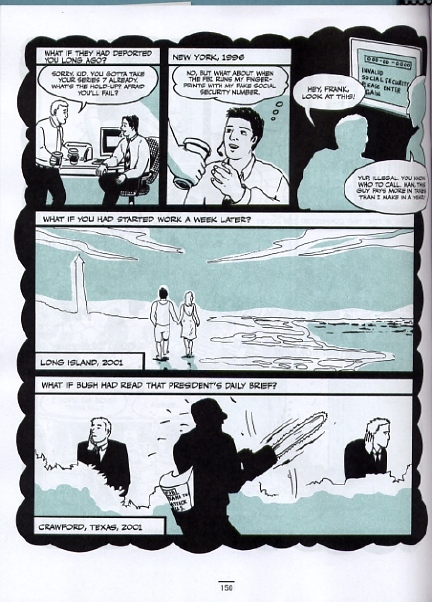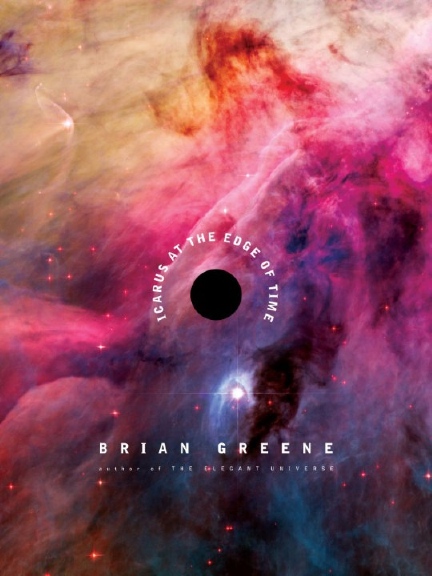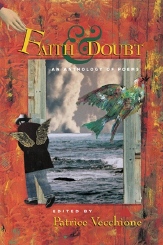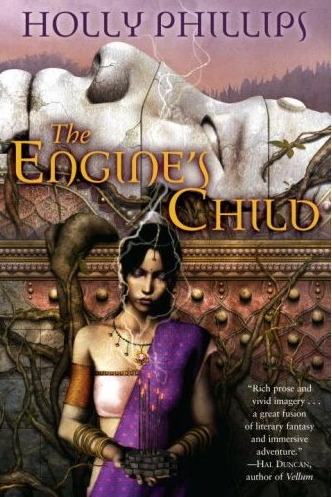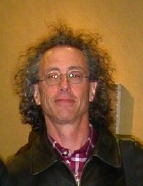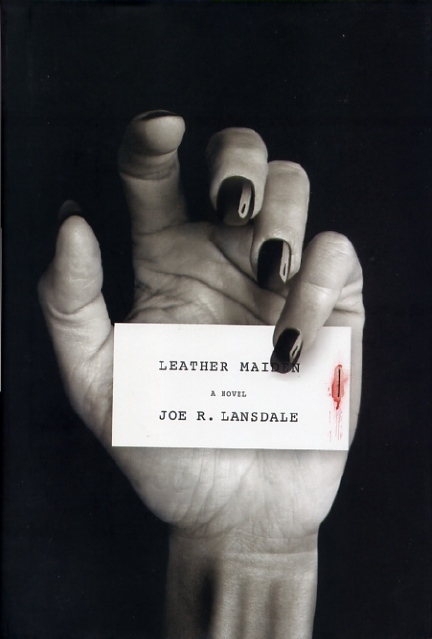|
|
|
|
This Just In...News
From The Agony Column
|
| |
|
08-29-08: 'American Widow' by Alissa Torres, Art by Sungyoon Choi; Agony
Column Podcast News Report : Talking About Space Opera With Lou Anders
|
Aftermath
|
A
vision of hope. (Note turquoise book cover at top.) |
What happens, happens.
What happens afterwards, what we do in the aftermath, defines us. We become
the sum of those actions. Alissa Torres did not have
it easy to begin with. She was pregnant when her husband Eddie lost his
job, and he didn't step immediately into a new position. New York's an
expensive place to live, and weeks dragging while he awaited word took
their toll. But she was smart and in love, and things worked out. On September
10, 2001, Eddie Torres started his new job in the World Trade Center.
'American Widow' (Villard / Random House ; September 9, 2008 ; $22) is
a gorgeously written and illustrated look at the aftermath of a national
tragedy on a personal level. Torres was seven and a half months pregnant
when her husband was killed. What most of the world saw played out on
small screens in small doses, Torres lived – and wrote – through.
'American Widow' is powerful, complicated in the way that life is complicated,
and packs a wallop. But Torres and her artist Sungyoon Choi bring a delicate,
beautiful tone to the story, allowing the reader to experience her world
without being torn apart. It's a wonderful balancing act that works every
time.
Torres originally wrote the graphic novel without herself as a character,
but when she showed the version she'd written – in Word, with text
boxes for the panels – to N. Christopher Crouch, he set her right.
He told her the book would not work without her in it, and helped her
write a screenplay-ified version of the book. When she went shopping for
artists, so to speak, she knew that she wanted a woman to illustrate the
book. Sungyoon Choi was clearly an excellent choice. The sense of space,
the colors and layout of the book are alternately astonishing and inviting.
Most of the book is highlighted with a pastel turquoise blue. Choi's style
brings out the serenity in Torres' narrative, a serenity that Torre herself
was forced to develop as she entered the labyrinth of help, self-help,
bureaucracy and news-feeding that followed those who lost loved ones.
At 205 pages, 'American Widow' is concise, but filled with the stuff of
life. This is how we live – and what we do in the aftermath of life.
|
Agony Column Podcast
News Report : Talking About Space Opera With Lou Anders : To Trek
or Not to Trek?
Today's Agony Column
Podcast News Report is my conversation with Pyr science fiction editor
Lou Anders. Inspired by 'Icarus
at the Edge of Time' and my own current reading, Peter F. Hamilton's
'Pandora's Star', I called up Lou to talk about Space Opera. We quickly
sidelined into a discussion that I'd like to ask readers about, to wit
– Star Trek. Space opera or not? If enough readers write
me, I'll publish your answers. You
can hear what Lou Anders and I came up with via this link. And it
strikes me that we can talk about your responses next time around. Email
me!
|
| |
|
08-28-08: Brian Greene Soars With 'Icarus at the Edge of Time' Reviewed
by Rick Kleffel ; Agony Column Podcast News Report : Kathryn Petruccelli
Interviews Patrice Vecchione
|
Cutting-Edge Physics
Leave Emotional Wounds
Books that are part
of the "space opera" sub-genre tend to have certain qualities.
First and foremost of these is size; theyre big, fat, books with
gorgeous covers and bazillions of words. Not so 'Icarus at the Edge of
Time' (Knopf / Random House ; September 3, 2008 ; $19.95) by Brian
Greene. Here's a board book for beginning readers that has the
impact of a powerfully written piece of space opera. As a bonus, you get
wall-to-wall astrophotography from the Hubble Telescope, art directed
by Chip Kidd. I've got
a review of the book here. And, if you're not averse to spoilers,
you
can find a gallery of some of the images from the book here on Chip Kidd's
website, and Chip
Kidd's insights into the making of the book here. It's fascinating
stuff. It's a revelation, really, as to what might be done with space
opera; a book-brick of a very different kind.
|
Agony Column Podcast
News Report : Kathryn Petruccelli Interviews Patrice Vecchione : "Poems
Are My Enemy"
|
|
|
Patrice
Vecchione and her book "Faith and Doubt".. |
Today's Agony Column
Podcast News Report comes from Kathryn Petruccelli, who went out to hear
Patrice Vecchione read her poetry and then spoke to her
in a Monterey coffee shop. Vecchione writes fascinating, intense poetry
with more than little humor. How can we not love a poet with a poem titled
"Poems Are My Enemy"? This
report consists of two five-minute readings recorded live, and then a
22-minute interview. Here's a link to the MP3. Some poems are not
your enemy.
|
| |
|
08-27-08: Joe R. Lansdale's 'Leather Maiden' ; Agony Column Podcast
News Report : SF in SF Panel Discussion With Michael Blumlein, Michael
Shea and Terry Bisson
|
Speaking In Voices
Joe R. Lansdale
has one hell of a voice. Listen to him speak, and you know he's got a
hotline to some truth that most of us can't manage to dig up. Not surprisingly,
this carries though in his writing. I've
got a full-length, in-depth review of his latest novel, 'Leather Maiden',
which offers the dual pleasures of familiarity and novelty. That's not
an easy slate to fill, but Lansdale's great strength is that he makes
something quite complicated look amazingly easy.
|
Agony Column Podcast
News Report : SF in SF Panel Discussion With Michael Blumlein, Michael
Shea and Terry Bisson : Novella
You can bet that if
you put Michael Blumlein, Michael Shea and Terry Bisson behind a little
table in front of a group of science fiction readers, youre going
to get a good conversation. In this case, they immediately launched into
a conversation about novella-length fiction, which, to be honest, I really
love. I think there's a lot more of it about than is generally understood.
For example, the recently mentioned 'Black Flies' by Shannon Burke, coming
in at under 200 pages, might by some be considered a novella. To
hear what these masters of the form have to say about the subject –
and about horror as practiced by both Shea and Blumlein – follow
this link.
|
| |
|
08-26-08: Holly Phillips Births 'The Engine's Child' ; Agony Column
Podcast News Report : Michael Blumlein Interviewed at SF in SF
|
Proof in the Prose
|
More
than just a pretty picture – or concept. |
High concept isnt
hard, especially with genre fiction, which has such a rich conceptual
background that there is literally an entire universe of ideas to pick
from. Science fiction, fantasy and horror have always been mixed together
in single works. From Mary Shelly's 'Frankenstein' to J. R. R. Tolkien's
'Lord of the Rings' to Jack Vance's Dying Earth to Michael Moorcock's
Multiverse to China Miéville's Bas-Lag to Jeff VanderMeer's Ambergris,
writers have mingled genres of the imagination so as to make any determination
of what work slots into what genre anywhere from difficult to pointless.
What distinguishes each author is not the conceptual framework, but rather,
the quality of the prose, the plotting, the unfolding of story and texture.
Open up the new novel by Holly Phillips, 'The Engine's
Child' (Random House / Ballantine / Del Rey ; November 25, 2008 ; $15),
and your reading experience will sweep away any notion of genre or concept.
Instead, you'll simply be there in "Shadras" with Moth as the
rain falls and the lamps blaze. Reading Phillips' novel provides layers
of pleasure; the immediacy of her prose and the joy of unpacking her world,
the involving skeins of plot and peril and unfolding understanding of
her conceptual framework. 'The Engine's Child' suggests that weve
stepped past the boundaries of genre and into literature that knows no
boundaries.
Moth lives in a world without boundaries as well. The world as we know
is dissolved and in its place is a world of magic that looks like technology
and technology that looks like magic, a world where the words "technology"
and "magic" are interchangeable – in inapplicable. What
strikes the reader are the immediacies of the world at hand; sizzling
desk lamps that speak secrets; the hiss of droplets cast from the oar
blades of the boats that ply the harbor. Phillips writes with a purity
of conviction that replaces the reader's world with her creation. And
she tells one hell of a good story in the process. It's not all shadings
and subtlety. Blood is spilled as the best-laid plans crash up against
the novel's carefully crafted reality.
Do note the vote of confidence in giving Phillips a gorgeous David Ho
cover painting. There's a sort of rainy-day feel to this novel, and the
cover captures that feel precisely. Sure, Id love to see a limited,
illustrated hardcover version of a text I feel to be this fine. But the
flips side is that this TPB might get into more hands. Hands to open the
book, minds to read the words, crate the world, again and again. Concepts
from on-high brought to life by artists, writers and readers.
|
Agony Column Podcast
News Report : Michael Blumlein Interviewed at SF in SF : Doctor in the
House
I had quite a conversation
with Michael Blumlein at SF in SF, as we talked about what it's like for
him to be a doctor as well as a writer of genuinely disturbing stories.
And while I understand why he feels his work is not horror, I also understand
why his work is shelved with horror. Blumlein has a disturbingly clear
vision of the humans, the sort of clarity that makes on distinctly uncomfortable
being human. We dont know what to do with that feeling, and thus
we classify it under "horror" – what does not make us
happy, scares us.
Readers and listeners, however, have no reason to far Blumlein. Heres
a link to the interview that demonstrates why.
|
| |
|
08-25-08: A 2008 Interview With Joe R. Lansdale
|
East Texas Westerns
|
Joe
R Lansdale hissownself at NPR West. |
Joe R. Lansdale
doesn't spend a whole lot of time touring. That's a good thing, because
it means he can spend more time writing books like 'Leather Maiden', wherein
we met Cason Statler, the great grandson of Sunset Jones ('Sunset and
Sawdust'). I made a trip to Southern California to talk with Lansdale
at NPR West, their state-of-the-art-studio in Culver City. It seemed like
a pretty decent way to start my second year of five-days-a-week podcasting,
and heck – Lansdale's worth it.
It's not surprising that Lansdale wears a lot of hats as a writer. He's
known for his horror, his science fiction, his Steampunk – 'Zeppelins
West' – which was bathing in pig urine when today's Steampunks were
watching the tech-stock option still climb shortly before the bubble burst
– as well as his more mainstream mysteries like 'Leather Maiden'.
This of course presumes that you can call anything Lansdale writes mainstream.
I'd say that's stretching the truth more than a little. Lansdale's too
talented and too funny for the mainstream.
Here's a link to our conversation. There might be some salty language
in there. Listen at your own risk. Please note that there is a secoind
readiung after the interview, so hang around!
|
| |
|
|

